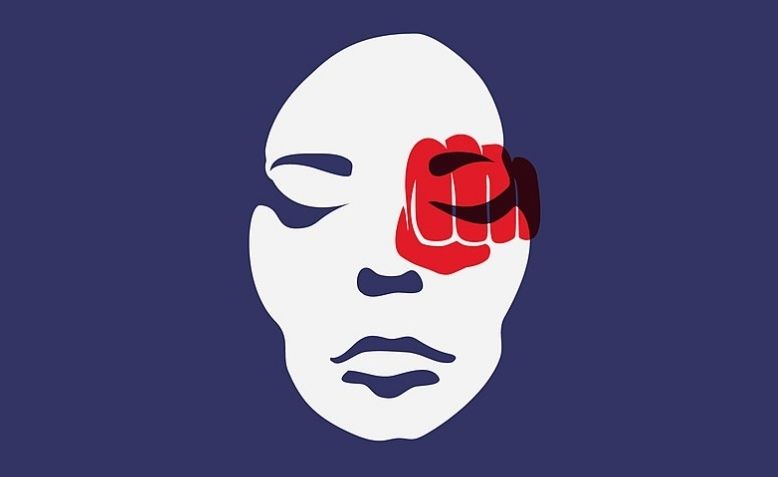 Bulgarian poster: Open your eyes - A campaign against gender violence. Source: Denitza Tchacarova / Wikimedia Commons / cropped original image / licensed under CC 2.0, linked at bottom of article
Bulgarian poster: Open your eyes - A campaign against gender violence. Source: Denitza Tchacarova / Wikimedia Commons / cropped original image / licensed under CC 2.0, linked at bottom of article
Commenting on the horrific murder of Sarah Everard, Lindsey German argues that violence against women and institutional sexism must be combated through collective action
The killing of Sarah Everard is one of those moments when people focus on the reality of women’s lives and the constraints put on them because of the threat of violence. It has been made more shocking by the arrest of a serving Metropolitan Police officer for the alleged murder. He incidentally was a member of the parliamentary and diplomatic protection force and so almost certainly had access to arms.
Everyday sexism
I don’t know any women who haven’t suffered some sort of sexual assault in their lives, and it becomes a constant fear at the back of one’s mind. I remember my mother warning me not to walk in parks after dark, and at school, we had both a guy who hung around near the netball courts exposing himself and a teacher who touched girls’ bra straps. On the non-stop tube between Wembley Park and Finchley Road, myself and my friend had a man expose himself to us in the next carriage. We were about 14.
Adult women learn to do all sorts of things to try to avoid this behaviour but of course, that doesn’t stop it. The greatest amount of violence against women is committed in and around the family but this general level of sexual threat and violence affects even those who do not suffer from direct abuse.
How to deal with it?
How to deal with it? People are rightly pointing out that women shouldn’t have to alter their behaviour or stay indoors to feel safe. But we also need to look at the wider society and the messages it sends people. Lots of men – I would argue the vast majority – abhor this violence against women. Dealing with the men who carry it out is obviously an important part of it. But we also need to look at the institutional sexism which exists in the police, the courts, government, companies.
Sexual harassment at work is extremely common. Rape prosecutions are pitifully low and women are pilloried for their sexual behaviour. Funding to help refuges and rape crisis centres have been repeatedly slashed. Media and social media make repeated pronouncements about women who they regard as behaving badly. The reality TV shows like Benefits Street present a degrading and insulting view of women.
All these fuel the worst sorts of attitudes and the objectification of women. My belief is we will only deal with these issues in any serious way when we bring about a transformation of society where our individual rights are protected as the result of collective struggle and change.
Solidarity with all those fighting these battles. And let’s keep in the forefront of our minds that women’s oppression is not over, it is not just about individual choices and lifestyles, not about getting a few more women prime ministers, presidents or CEOs. It goes to the heart of a society that has two oppressed majorities – women and the working class. It is in the interest of our rulers to minimise and ignore that oppression. Socialists should not make the same mistake.
Lindsey German will be speaking at The Individual and Collective in Women’s Liberation this Saturday at 2 PM. Register here.

Before you go
Counterfire is growing faster than ever before
We need to raise £20,000 as we are having to expand operations. We are moving to a bigger, better central office, upping our print run and distribution, buying a new printer, new computers and employing more staff.

